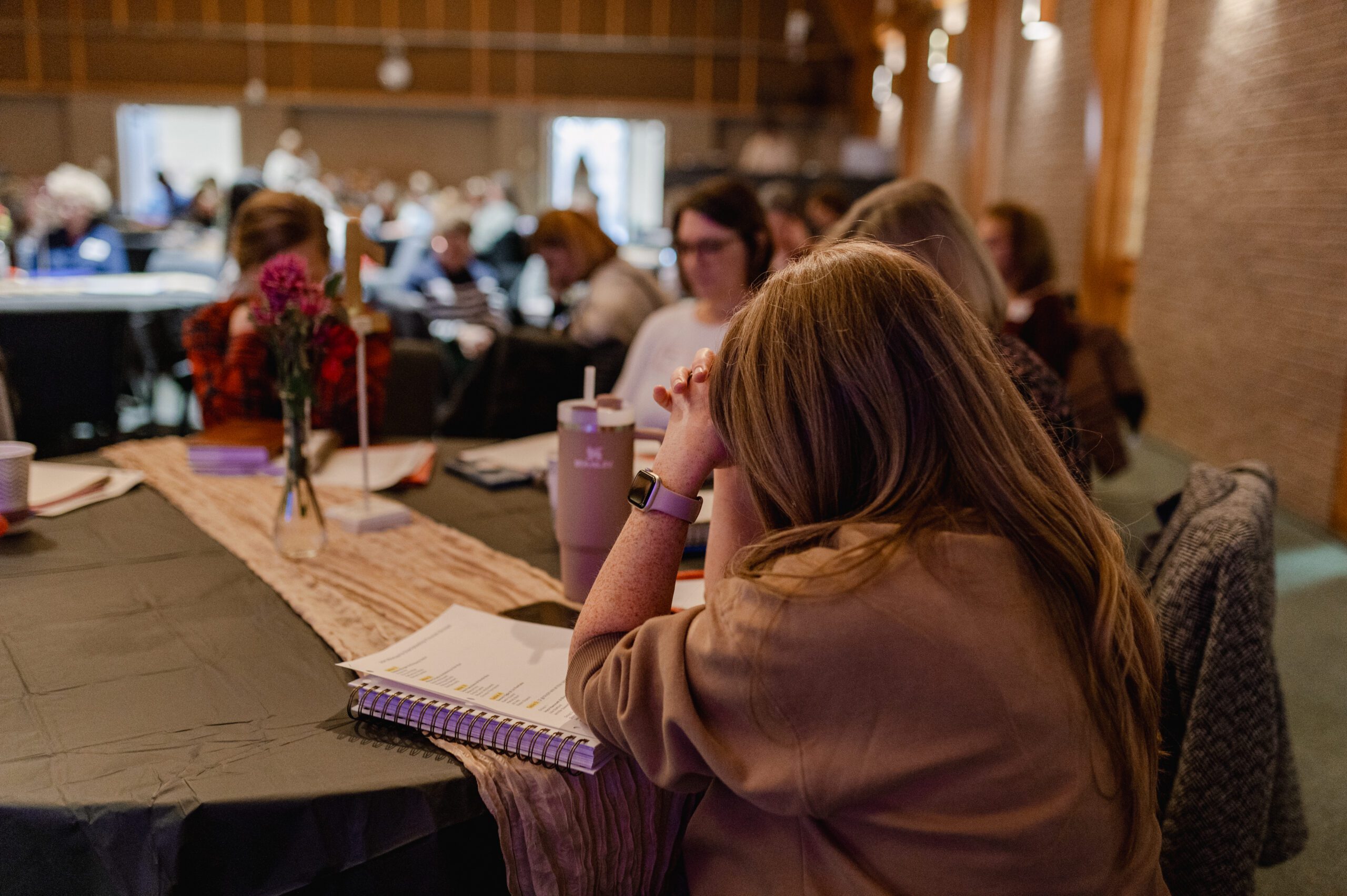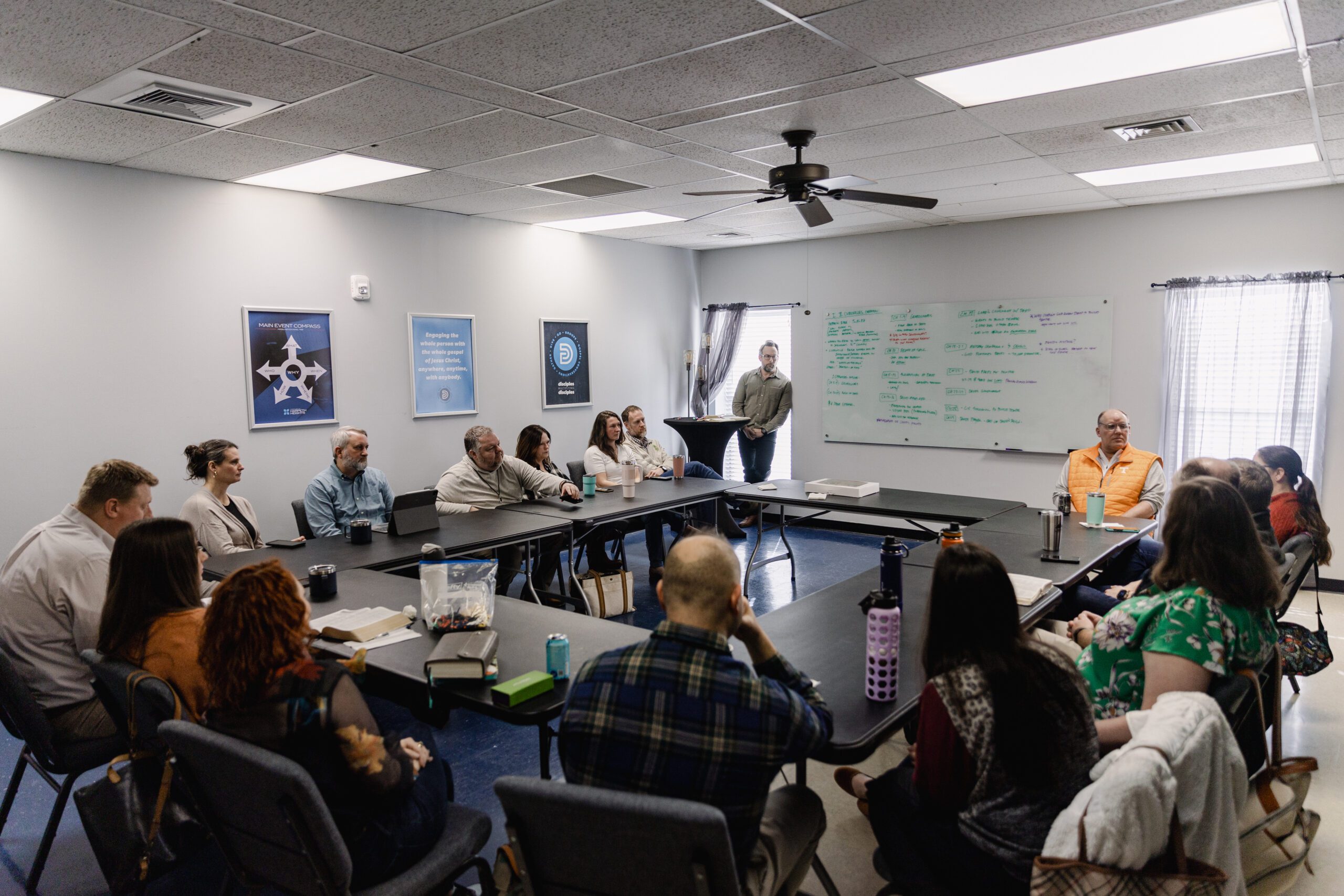When we think about healthy small groups, one key indicator stands out: they’re multiplying.
Multiplication isn’t just about numbers – it’s about creating new spaces where people can experience authentic community and spiritual transformation. When we see new leaders emerging and new groups forming, we know the gospel is taking root in meaningful ways.

1. Multiplication is Core to Discipleship
Jesus modeled multiplication from the beginning. He invested in a small group of followers who went on to make more disciples. This pattern continues today in our groups. When we embrace multiplication, we’re participating in this ongoing work of discipleship.
As J.T. English writes in Deep Discipleship, “Discipleship never terminates with a disciple; all disciples are called to go make more disciples.”
2. Creating Space for New Connections
One of our biggest challenges in growing churches is helping everyone find meaningful community. When our existing groups become comfortable but closed, we unintentionally create barriers for newcomers seeking to belong.
A year into my role at Avenue South, one of the biggest challenges I faced was connecting new people into existing groups. The reality is, our groups can become so tight-knit that we unintentionally create barriers. I don’t think any of our groups would consider themselves unwelcoming, but the very nature of being a tight-knit community means we must work intentionally to remain open and inviting to newcomers.
We need to regularly ask ourselves: “Are we content with who’s in the room, or are we looking around asking who’s not here yet?” This posture of welcome makes all the difference.
3. The Power of Smaller Groups
While larger groups can feel welcoming initially, they often make it harder for everyone to engage deeply. In groups of 8-12 people, we typically see:
- More meaningful participation
- Deeper conversations and questions
- Stronger accountability
- Greater opportunity for everyone to use their gifts
When a group grows beyond this size, it’s often a signal to prayerfully consider multiplication – not to break relationships, but to create new opportunities for deeper connection.

4. Developing New Leaders
Healthy multiplication naturally develops new leaders. Think about your own journey – someone likely saw leadership potential in you before you recognized it yourself. In our groups, we can intentionally:
- Identify people already leading in small ways
- Give opportunities to facilitate discussions or coordinate care
- Encourage stepping into new roles
- Create space for learning and growth
5. Extending Our Reach
Groups are not just for us—they’re for those who haven’t found community yet. A multiplying small groups ministry means more people in our neighborhoods, workplaces, and communities can experience the gospel.
For our church, some of our most effective groups are those meeting in neighborhoods, near college campuses, or in areas where young professionals gather. These groups create natural opportunities for people to invite others from their sphere of influence into community. It’s often easier for someone to say “yes“ to joining friends for dinner or coffee than walking into a church building.
When we multiply groups, we’re essentially creating more front doors – more accessible entry points where people can encounter Christ through authentic relationships. This isn’t just about growing our numbers; it’s about expanding our reach so that more people can experience the kind of life-changing community we’ve found. If we don’t multiply, we’ll limit what we can offer as a church for continued discipleship and community building.
Creating a Culture of Multiplication
Start with the Right Foundation
Make multiplication part of your group’s DNA from day one. Help everyone understand that growth and multiplication aren’t about division – they’re about extending God’s kingdom and creating more space for others to belong.
At Brentwood Baptist, we say “We are about disciples who multiply disciples.” This isn’t just a catchphrase – it’s the heartbeat of how we approach group life. Making multiplication part of your group’s DNA starts from day one, in those first conversations and gatherings.
I find it helpful to be upfront with new groups:
“Let’s talk about what a healthy group looks like. Our goal is to make disciples, which means we’re called to both grow deeper in our faith and pour into others. Yes, we’ll journey together, but we also need to create space to welcome and invest in those who aren’t here yet.”
When we set that expectation early and include the group in conversations about future multiplication, it becomes something we celebrate rather than something we resist.

Invest in Leadership Development Early
Encourage group members to take on small leadership roles:
- Facilitating portions of discussion
- Coordinating prayer times
- Organizing service projects
- Planning social gatherings
Remember, leadership isn’t about having all the answers – it’s about faithfully serving others.
Celebrate Each Step
Frame multiplication as a win for everyone involved:
- Share stories of life change from new groups
- Host celebration gatherings when groups multiply
- Regularly highlight new leaders and group
- Keep the vision of multiplication in front of the church
Trust the Process
At its core, multiplication isn’t something we manufacture – it’s something we trust God to do through us. Our role is creating an environment where discipleship can flourish and people can grow.
Moving Forward Together
Creating a multiplication culture takes time and intentionality. It requires us to hold our small groups with open hands and keep our focus outward. But the impact is worth it:
- Every new group is another space for authentic community
- Every new leader is another disciple being equipped
- Every person who finds belonging is another life being transformed
So what’s your next step?
We need to have a plan for multiplication. This means thinking about the next 12-18 months and asking, “What might this look like for our group?” Include your whole group in that conversation. When multiplication happens, celebrate it! Have a sending-off party for the new group. Make it a big deal – because it is a big deal.
Each time we multiply, we’re creating new opportunities for people to find community and grow in their faith.
This isn’t about pressure to multiply just to multiply. It’s about investing in healthy small groups, developing new leaders, and being intentional about welcoming others in. At its heart, multiplication isn’t about church growth – it’s about being obedient to Jesus’ call to make disciples who make disciples.
When we keep both our inward and outward focus, we’re living out that call:
🌱 People step into their giftedness
🌱 New leaders emerge
🌱 More disciples are equipped to go and make disciples themselves

Shannon Moore leads as the Groups & Connections Minister at The Church at Avenue South in Nashville, bringing over 20 years of ministry experience. She focuses on building biblical community and fostering discipleship, while enjoying life with her husband Chad, their son CJ, and daughter-in-law Kelsee.
